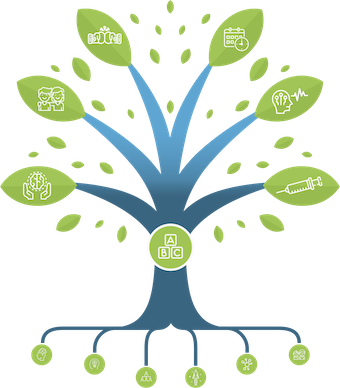What are the triggers of migraine?
Being able to identify your triggers can help you avoid migraines. How can you identify them? Keeping a migraine diary is very helpful. Read on to know more about triggers. Some important points about triggers: They are not the same for every migraineur They accumulate,…
Does weight have an influence on headaches?
If you are overweight, you are 3 times more likely to develop chronic headaches than people with a healthy weight. Several studies have established an association between weight and headaches (not only migraines): overweight or obese people are more likely to suffer from frequent headaches….
Migraine & Relationships
Coping with migraine is rarely a solitary undertaking. Support from family and friends is often key to managing and coping with migraines. Sometimes, in the health care field, the focus is on the migraine patient, and the needs of family and friends are forgotten or…
What is medication overuse and why is it important?
If you have frequent headaches and are using symptomatic medications frequently, could your medication use be part of the problem? Shown below are the limits suggested by the International Headache Society which, if exceeded, places people, particularly those with migraine, at risk for increasing headache…
How do my doctor and I choose which prophylactic medication I should try?
There is no easy answer to this question, as most prophylactic medications have not been shown to be better or worse than another. It depends on the individual patient. There are several considerations in deciding where to start in the long list of prophylactic medications…
What can I expect from my migraine prophylactic medication?
First of all, don’t expect instant results. It will take at least two months before you know whether the medication will be a success for you or not, and another month or two before you know how good things are going to get. On the…
When should you consider going on a prophylactic medication?
Preventive medication is not necessary for every migraine sufferer. Usually preventive medications are not considered unless a person is having at least 3 migraine attacks a month. There are however special circumstances where they may be considered even if migraine attacks are not that…
How many different types of triptans are there?
There now are 7 different triptans available in Canada, and some have more that one formulation : injections, tablets to swallow, tablets that dissolve in the mouth, and nasal sprays. They are listed in alphabetical order in the table below. If you are taking one,…
Are tablets my only option?
I have fast rising attacks with early nausea or vomiting. I do not keep the tablets. Are there other options for me? Many people with migraine have nausea or in some cases even vomiting with their attacks. For this reason, medications that are ingested may…
What about strong painkillers?
By strong painkillers, most people mean the ones that contain opiates. The most common opiate included in the combination drug analgesics is codeine. Although such medications are in some ways good painkillers, there are reasons to try to avoid them in migraine. For one thing,…
The available symptomatic migraine medications
The medications to be discussed here are the symptomatic migraine medications which are used to treat individual migraine attacks. They can be divided into four broad categories 1) The simple analgesics Included here are medications like acetylsalicylic acid ASA for example, Aspirin and acetaminophen ,for…
Migraine & Posture
So we have all likely been told at one time or another to stand up straight. Proper posture is an important part of overall health and wellness. For those who experience a headache disorder, including migraine and/or tension-type headache, postural awareness and correction is an…
Categories
THE MIGRAINE TREE
- BRANCHES
- ACUTE TREATMENTS
- DEVICES AND NEUROMULATIOIN
- PREVENTIVE TREATMENTS
- PROCEDURES AND INJECTIONS
- SELF-CARE AND LIFESTYLE
- SOCIAL LIFE
- TRUNK
- ROOTS
OTHER CATEGORIES








